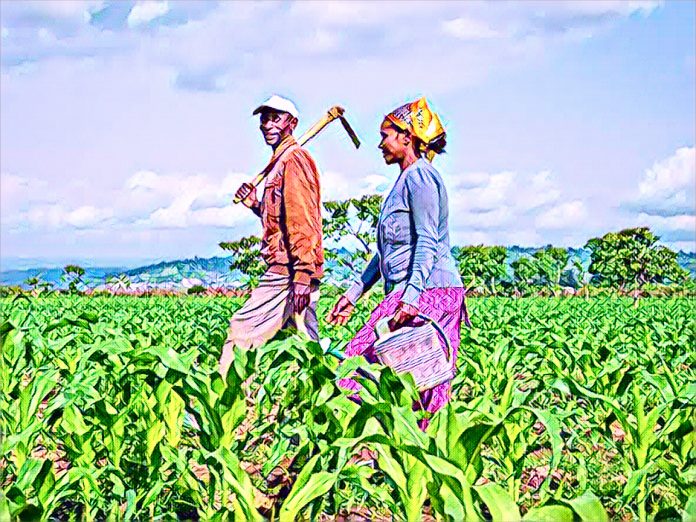KEY POINTS
- Sustainable agriculture is vital as population growth and climate change strain traditional farming.
- Precision farming, hydroponics, and organic farming improve yields and reduce waste.
- By 2050, food demand will rise by 60 percent, requiring sustainable solutions.
The need for sustainable agriculture is more important than ever as the world’s population rises and traditional farming practices are increasingly threatened by climate change.
Food production is changing as a result of innovative methods like precision farming, hydroponics, and organic farming, which seek to boost productivity, cut waste, and maintain environmental sustainability.
The World Resources Institute forecasts that by 2050, there will be 10 billion people on the planet, increasing demand for food by almost 60 percent. However, a report by the Food and Agriculture Organisation (FAO) states that agriculture is one of the main producers of greenhouse gas emissions, accounting for one-third of global emissions.
Growing evidence points to the importance of sustainable agriculture methods in striking a balance between the need to preserve the environment and enhance the food supply.
Precision farming: Data-driven agriculture
Precision farming enables farmers to apply inputs just where necessary, assess crop health in actual time, and reduce waste by utilising data analytics, satellite imaging, and cutting-edge sensors.
The U.S. Department of Agriculture (USDA) states that, for instance, the use of GPS-guided tractors can minimise waste in field operations and that soil sensors can offer vital information on moisture levels and nutrient requirements.
This lowers expenses and lessens the impact on the environment by enabling farmers to use water or fertiliser only when necessary.
There are significant financial advantages. According to a report by Planet Labs, precision farming technology has the potential to boost harvest rates while lowering the cost of inputs.
Beyond these financial benefits, precision agriculture has the potential to drastically lower farming-related emissions by reducing excessive chemical use and increasing fuel efficiency.
Hydroponics: Farming without soil
Hydroponics is a fast-expanding concept in sustainable agriculture that involves growing plants not in soil but in a nutrient-dense water solution. This approach enables farmers to produce crops in controlled surroundings, often indoors and is especially helpful in areas with poor soil quality or little arable land.
Hydroponic systems use much less water than conventional soil-based farming. According to Research Gate, hydroponic farms consume 90 percent less water than traditional farms. This makes it a desirable choice in regions lacking in water, like some sections of California and the Middle East.
Hydroponics presents several difficulties, though. Indoor farms can have high energy requirements, particularly those that use artificial lighting. However, developments in renewable energy sources and energy-efficient LED lighting are assisting in alleviating these concerns.
Organic farming: A return to natural methods
While hydroponics and precision farming are transforming agriculture, organic farming provides a more conventional, but equally significant, approach to sustainability. The goal of organic farming is to avoid using artificial chemicals and genetically modified organisms (GMOs) in order to preserve the health of ecosystems, soils, and human populations.
The market for organic food has grown significantly in recent years. According to the Organic Trade Organisation, the U.S. organic market saw record sales in 2022 of $69.7 billion. The desire from consumers for food grown without toxic pesticides or fertilisers is contributing to this increase.
Soil health is one of the main principles of organic farming. Crop rotation, cover crops, and composting are some of the methods used by organic farmers to keep their soil fertile. This helps to sequester carbon in the soil and lessens the need for synthetic fertilisers. Additionally, healthy soils hold onto greater amounts of water, which is important in drought-prone areas.
Organic farming is not without its difficulties, though. In the early years of switching to organic agricultural methods, yields may be lower than in conventional farming. According to a 2023 study that was published in Science Direct, the average yield from organic farms was 25% lower than that of conventional farms. However, the same study also discovered that organic farming practices exhibited greater resistance to extreme weather, suggesting that they could be a vital instrument for adapting to climate change.
A sustainable future
Using sustainable farming methods is essential to both conserving the environment and satisfying the world’s expanding food needs. These problems can be addressed in different ways via precision farming, hydroponics, and organic farming; these methods can minimise chemical inputs, promote biodiversity, and use less water.
These creative farming techniques will be essential for creating robust, sustainable food Sustainable agriculture is demonstrating that it is feasible to produce more food with less resources—ensuring that both people and the world can thrive—whether through cutting-edge technology or a return to natural means.



